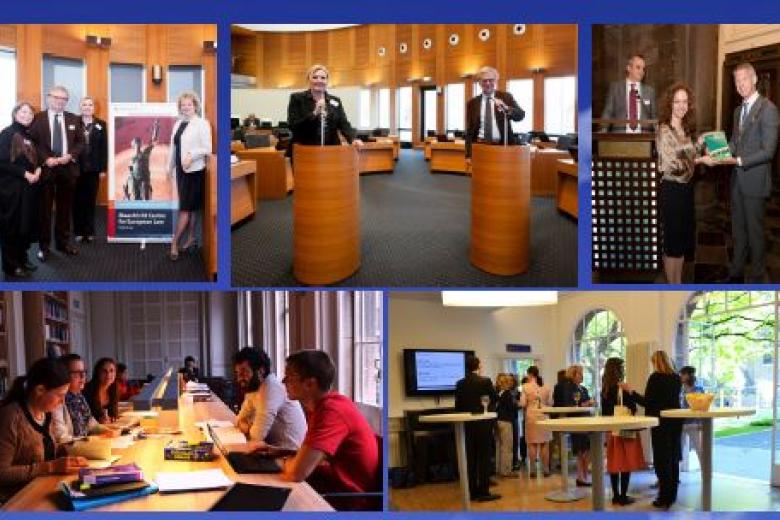Publications by members of our centre
See the list of recent publications by the members of our Centre. For more information on our scholars and their publications please go to MCEL's People page.
-
Melin, P., & Parthenopoulos, N. (2025). Overview of recent cases before the Court of Justice of the European Union (July 2024-January 2025). European Journal of Social Security, 1-10. Advance online publication. https://doi.org/10.1177/13882627251332963More information about this publication
-
Bellenghi, G. (2025). Review of: Z. Xhaferri, Law and Practices of Delegated Rulemaking by the European Commission, Leiden: Brill | Nijhoff 2023, 368 p. (ISBN: 978-90-04-50987-0). Review of European Administrative Law, 18(1), 109-110. https://doi.org/10.7590/187479825X17412660273172More information about this publication
-
Philipsen, N., Schoenmaekers, S., Visscher, L., & Weber, F. (Eds.) (2025). By the End of the Day: Liber Amicorum Michael Faure. Wolters Kluwer.More information about this publication
-
Philipsen, N., Schoenmaekers, S., Visscher, L., & Weber, F. (2025). Introduction. In N. Philipsen, S. Schoenmaekers, L. Visscher, & F. Weber (Eds.), By the End of the Day: Liber Amicorum Michael Faure (pp. 1-14). Wolters Kluwer.More information about this publication
-
Riordan, R. (2025). Review of: Christian Joerges, Conflict and Transformation: Essays on European Law and Policy, Oxford, UK: Hart Publishing, 2022 (i-vii + 605 p.). Journal of Common Market Studies, 1-2. Advance online publication. https://doi.org/10.1111/jcms.13751More information about this publication
-
Bellenghi, G. (2025). Neither Normalcy nor Crisis: The Quest for a Definition of Emergency under EU Constitutional Law. European Journal of Risk Regulation, 1-20. Advance online publication. https://doi.org/10.1017/err.2025.17More information about this publication
-
Eliantonio, M., Dubos, O., & Richelle, J. (2025). The “Transnational” Dimension of EU Environmental Legislation and Its Operationalization at the National Level. Journal for European Environmental & Planning Law, 22(1/2), 5-22. https://doi.org/10.1163/18760104-22010201More information about this publication
-
Bellenghi, G., & Vos, E. (2025). The Proposal to Reform Comitology is Dead. Long Live Comitology!. Web publication/site, European Law Blog. https://doi.org/10.21428/9885764c.c06d02e7More information about this publication
-
Dube, N. (2025). Connecting the Seemingly Disconnected: Intersectionality's Role in Eliminating Discrimination. Web publication/site, . https://www.humanrightshere.com/post/reflecting-on-zero-discrimination-day-at-hrh-connecting-the-seemingly-disconnected-intersectionality-s-role-in-eliminating-discriminationMore information about this publication
-
Schoenmaekers, S. (2025). Er bestaan dwingende redenen van algemeen belang om een volumebeleid voor passagiersvaart op de Amsterdamse binnenwateren in te stellen, maar het college heeft niet goed gemotiveerd dat de genomen maatregelen geschikt en noodzakelijk zijn. Het beleid is daarom op dit moment in strijd met de Dienstenrichtijn. JB 2025/40. Case note on: Raad van State, 25/09/24, ECLI:NL:RVS:2024:3732 (JB 2025/40). Jurisprudentie Bestuursrecht, 32(3), 273-276.More information about this publication
-
Puharinen, S.-T. (2025). Transnationality in EU Marine Environmental Law-Examining the Multilayered Legal Structures through the Lens of Offshore Wind Power Development in the Baltic Sea. Journal for European Environmental & Planning Law, 22(1/2), 147-167. https://doi.org/10.1163/18760104-22010208More information about this publication
-
Eliantonio, M., & Ivanchykava, T. (2025). Transnationality in the E IA and SEA Directives and the Blind Spots of Judicial Control. Journal for European Environmental & Planning Law, 22(1-2), 23-48. https://doi.org/10.1163/18760104-22010202More information about this publication
-
Sivonen, S., Mertens, P., Kramer, S., Didden, B., Melin, P., & Cörvers, F. (2025). Mobility and Integrated Labour Markets for Third-country Nationals in Greater Copenhagen: Barriers to cross-border labour mobility for TCNs – learning from other EU cross-border regions. OECD Publishing. https://doi.org/10.1787/ba2a4777-enMore information about this publication
-
Eliantonio, M., & Petropoulou Ionescu, D. (2025). The European Ombudsman as a Good Administration 'Influencer': Revisiting Concepts, Methodological Challenges, and Promises Ahead. In D. Curtin, T. Ehnert, A. Morandini, & S. Tas (Eds.), The European Ombudsman Investigated: From Old Battles to New Challenges (pp. 145–162). Hart Publishing. https://doi.org/10.5040/9781509975631.ch-011More information about this publication
-
Curtin, D., Ehnert, T., Morandini, A., & Tas, S. (Eds.) (2025). The European Ombudsman Investigated: From Old Battles to New Challenges. Hart Publishing. https://doi.org/10.5040/9781509975631More information about this publication
-
Dube, N. (2025). A typology of comparators and comparisons in EU equality law. Common Market Law Review, 62(1), 49-84. https://doi.org/10.54648/cola2025003More information about this publication
-
de Coninck, J., & Tas, S. (2025). Investigating five dimensions of the EU’s liability regime: Marián Kocner. Common Market Law Review, 62(1), 195-214. https://doi.org/10.54648/cola2025008More information about this publication
-
Eliantonio, M., Klafki, A., & Lanceiro, R. (2025). Transnational Judicial Control in EU Law: The Practice of National Courts. European Public Law, 31(1), 1-16. https://doi.org/10.54648/euro2025007More information about this publication
-
Diéz Sánchez, L. (2025). Why cohesion policy is not about cohesion. Common Market Law Review, 62(1), 13-48.More information about this publication
-
Dube, N. (2025). Taking Stock of the EU Pay Transparency Directive's Intersectional Approach. European Equality Law Review, 43-57.More information about this publication
Mariana Militão Baptista (2024) - The Practice of Temporary Loss of EU Citizenship: Questioning Renunciation Prior to Acquisition of Nationality
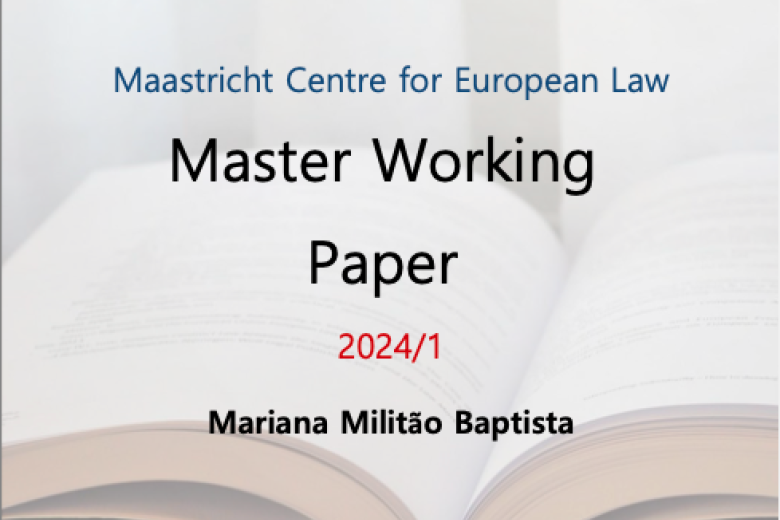
Enrico Macciotta (2023) - On the discretion of EU Institutions in science-based policymaking: the case of nuclear energy in the Complementary Climate Delegated Act to accelerate decarbonisation
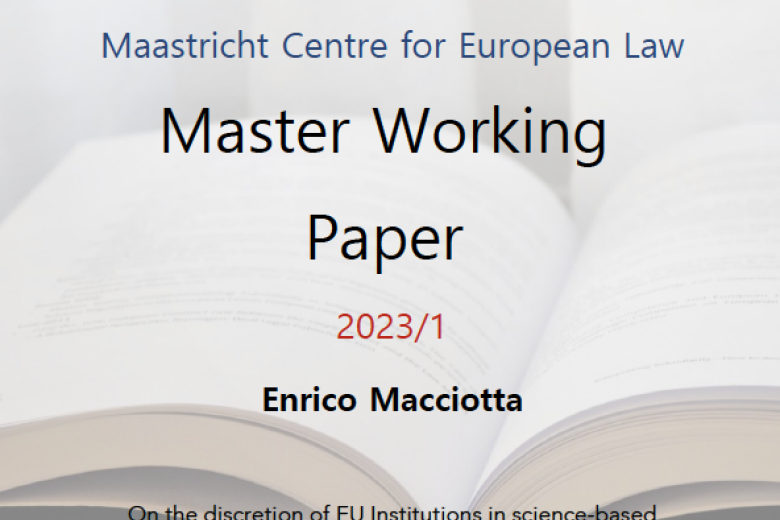
Yasmina Bajaj (2023) - The absence of EU-wide set maximum and minimum amounts of vitamins and minerals in the EU legislation on food supplements: Is a balance between public health and free movement of goods possible?
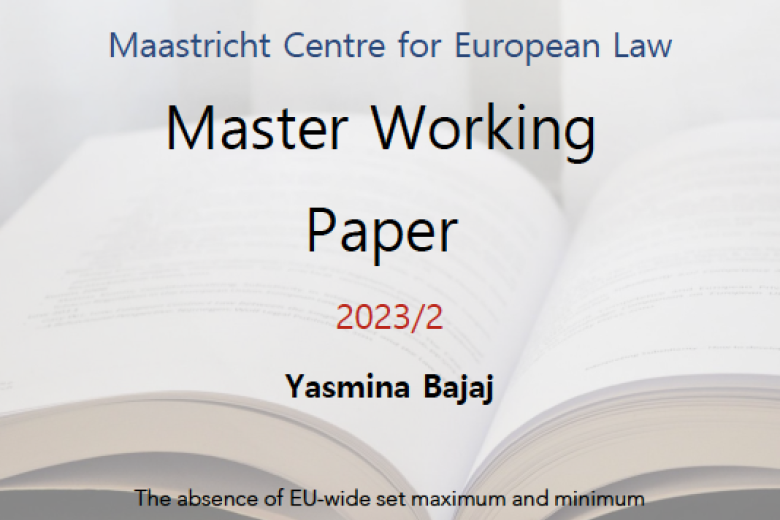
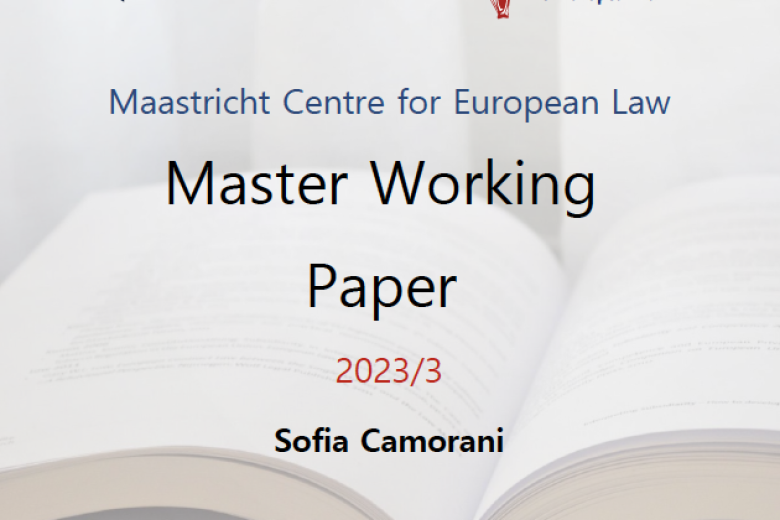
Guido Bellenghi (2022) - 116 Ways to Get Rid of Unanimity: Exploring the Potential of the Market Distortion Legal Basis
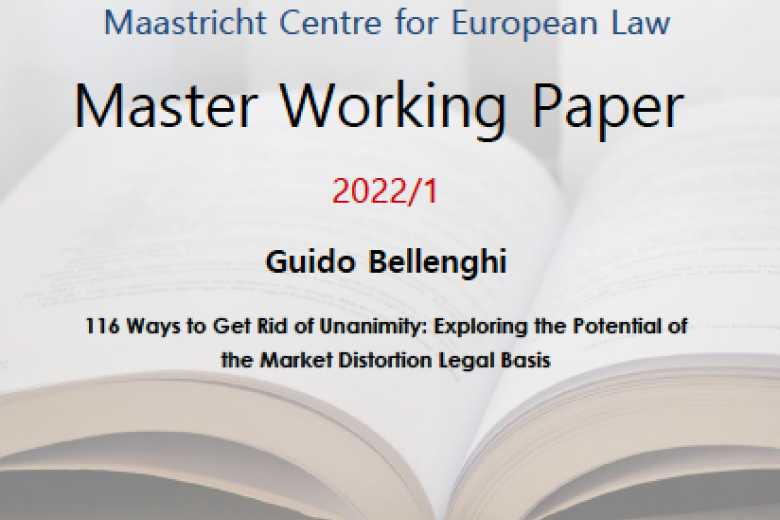
Mateus Correia de Carvalho (2021) - Mutual Trust amidst the Rule of Law Backsliding Crisis: a Janus-faced principle?
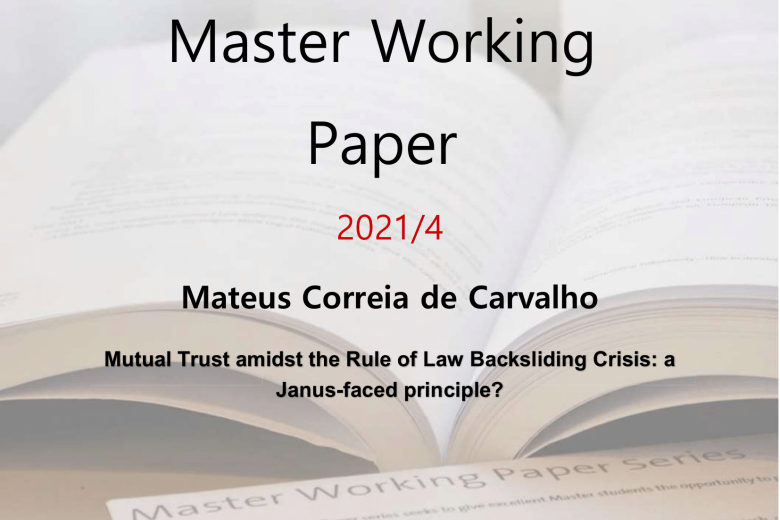
Emma Pessotto (2021) - To What Extent Does the Conclusion of the EU-UK Trade and Cooperation Agreement Demonstrate That EU-only Conclusion Can be Legally Obligatory in Cases of Facultative Mixity?
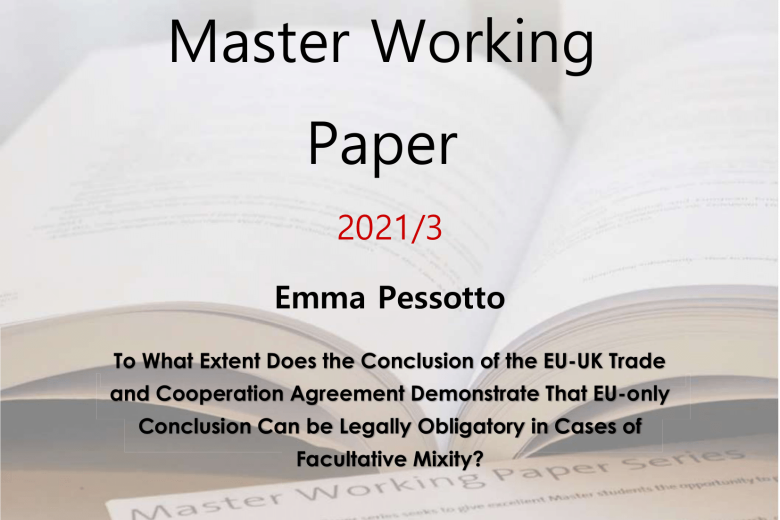
Alexander Merkulov (2021) - European Union Competition Law and Environmental Policy: Is there a place for environmental considerations in contemporary European Competition law? If not, what are the possible ways of filling the sustainability gap?
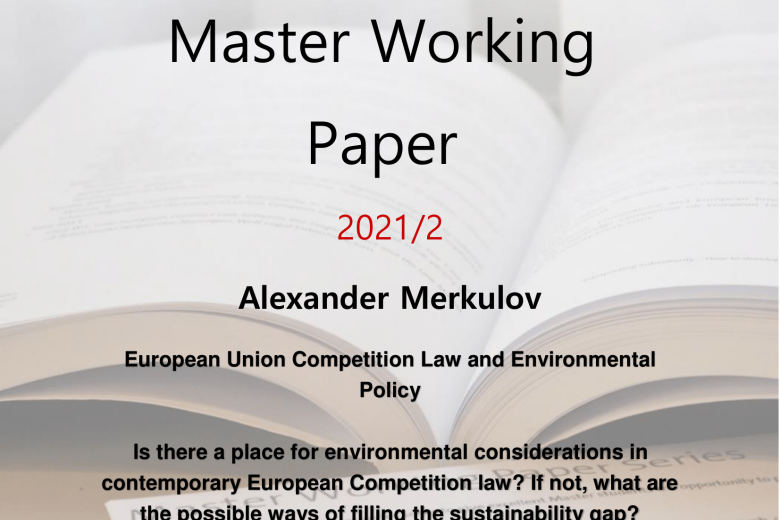
Jasper Nebel (2021) - Constitutional Pluralism in the aftermath of the PSPP judgment: Reflections on the enhancement of judicial dialogue in the EU.
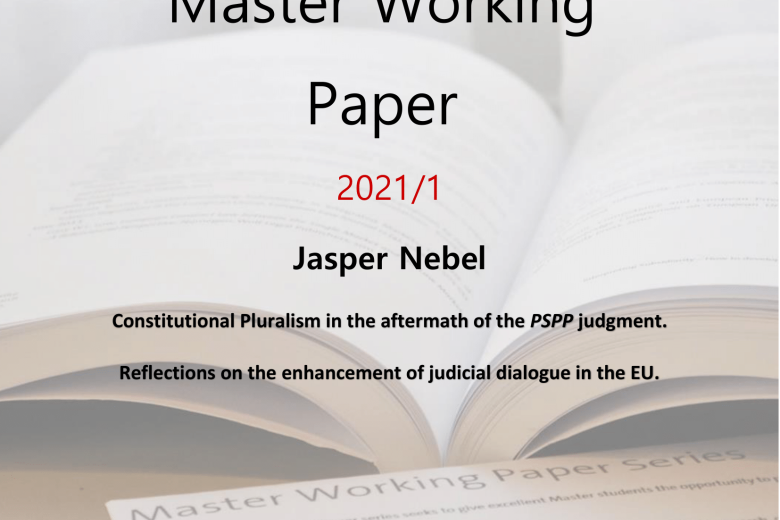
Thomas Mileville (2020) - From economic crisis to existential crisis and back: How has the role of the European Stability Mechanism in the reformed EMU been shaped through economic challenges?
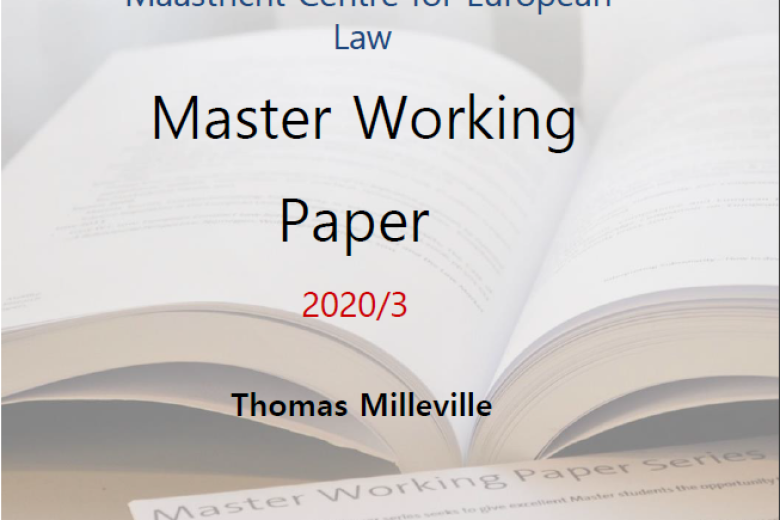
Julie Dorval (2020). The Principle of Mutual Trust Between Member States in the Context of the Rule of Law Crisis.
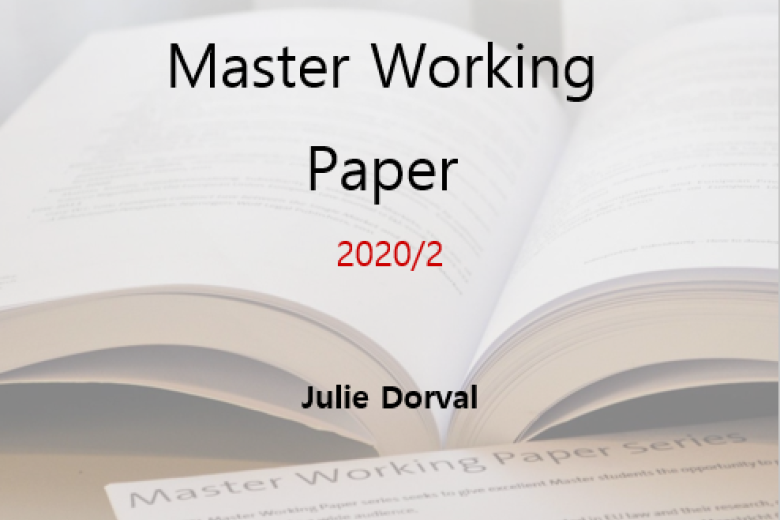
Eva Bukaiova (2020). Horizontal application of the Charter after Bauer - Is wider recognition by the Court of Justice of the EU possible?
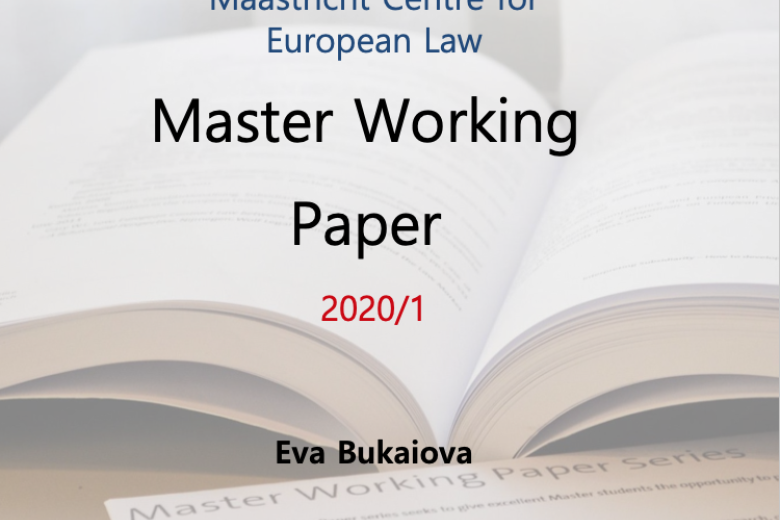
Florian Ockenfuss (2019). EASO’s Role in Supporting Member States. Hotspots as Incubators of an Integrated European Asylum Policy.
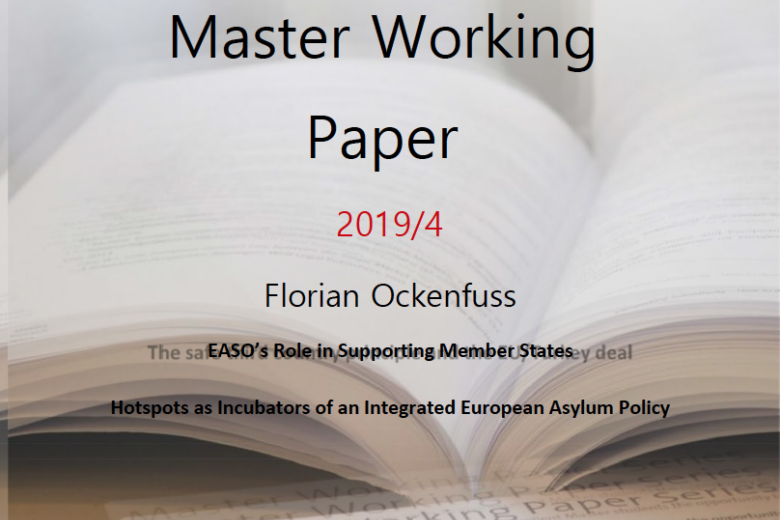
Monique Frederikke Lundh (2019). The forgotten EU dimension in the Urgenda Case and the applicability of the Charter.
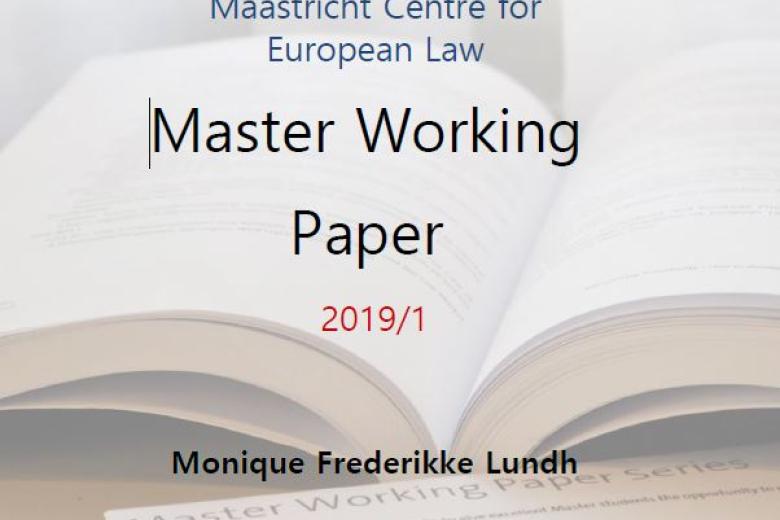
Phoebe Cox (2019). The Contribution of the Fundamental Rights Agency to Fundamental Rights Protection in the European Union.
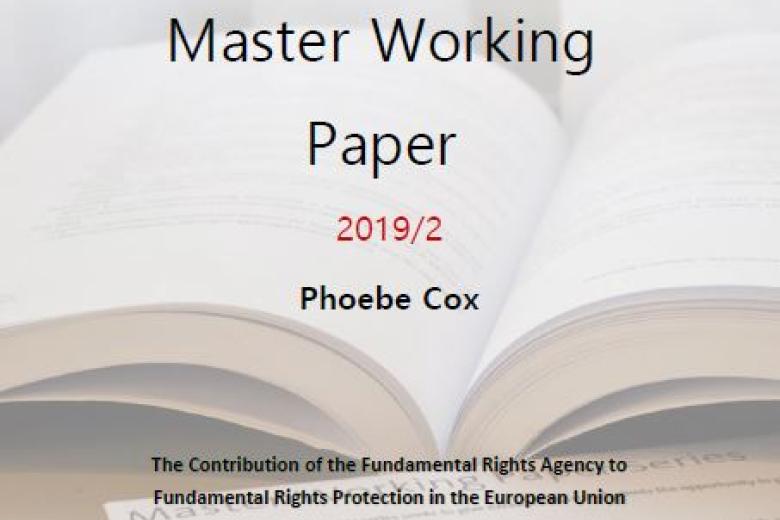
Felix Peerboom (2019). The safe third country principle and the EU/Turkey deal. To what extent is the current application of the safe third country concept under EU law in compliance with international human rights law?
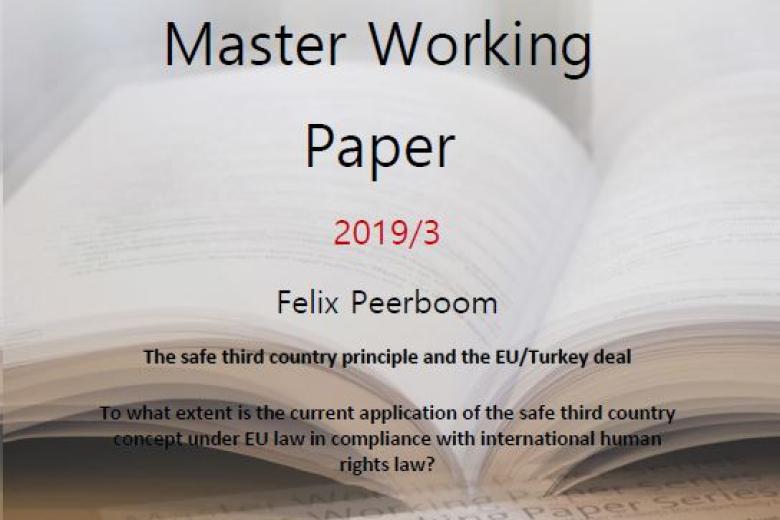
Sarantis Niotis (2018). The Birth of the EMF - Integrating the ESM into the EU Legal Order: 'Constitutional' Challenges.

Thomas Devine (2018). The End of the European 'Delaware': UK Limiteds in the EU after Brexit.
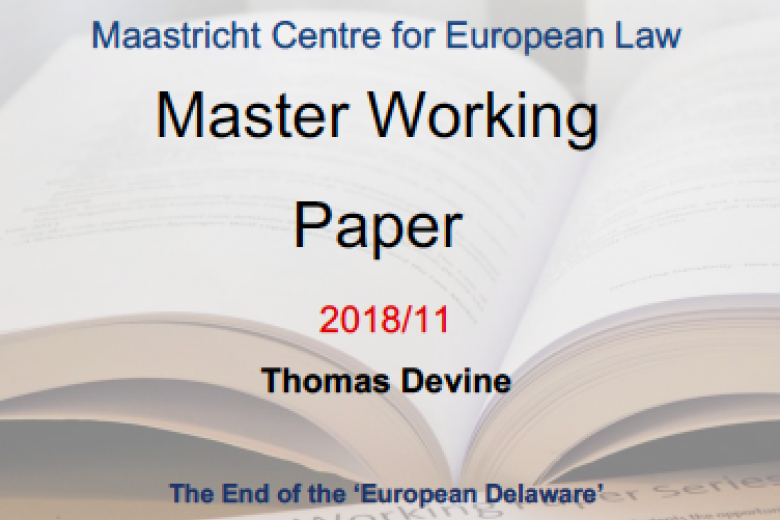
Nikolaos Papadopoulos (2018). Austerity-based Labour Law Reforms in Greece vs Fundamental Rights during the European Debt Crisis: An evaluation through the lens of supranational and national bodies' jurisprudence.
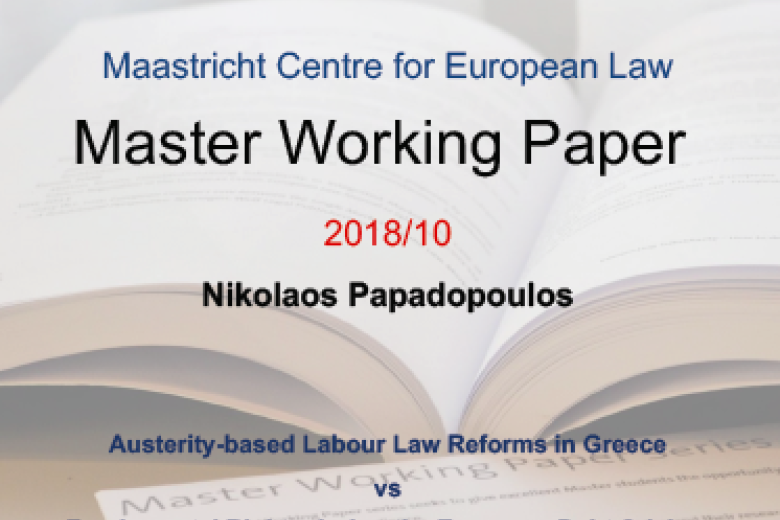
Priscilla Tollini (2018). The Era of Big Data: The Interplay Between Competition Law and Data Protection.
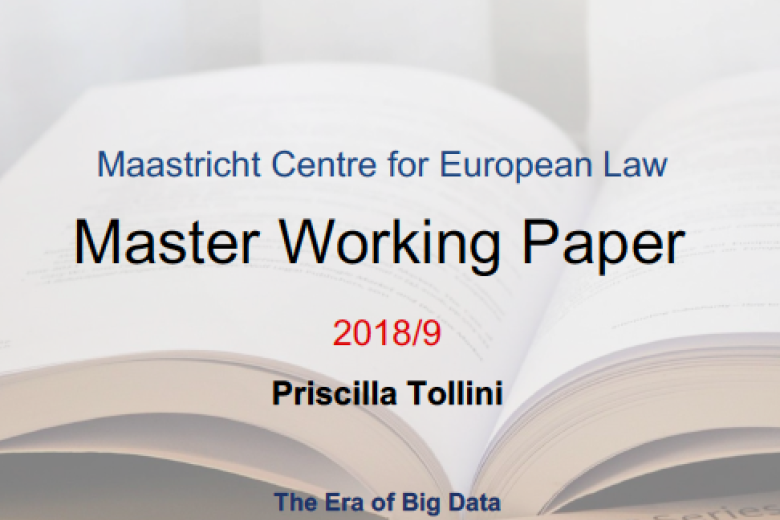
Juncal Montero Regules (2018). Disinformation and Freedom of Expression - A Study on the Regulation of 'Fake News' in the European Union.
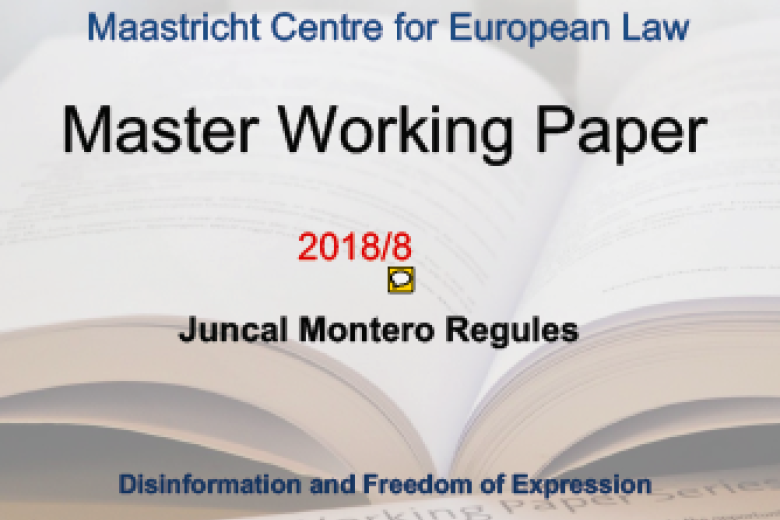
Florence Wautelet (2018). Intersectionality theories and headscarf cases before the ECtHR and the CJEU.
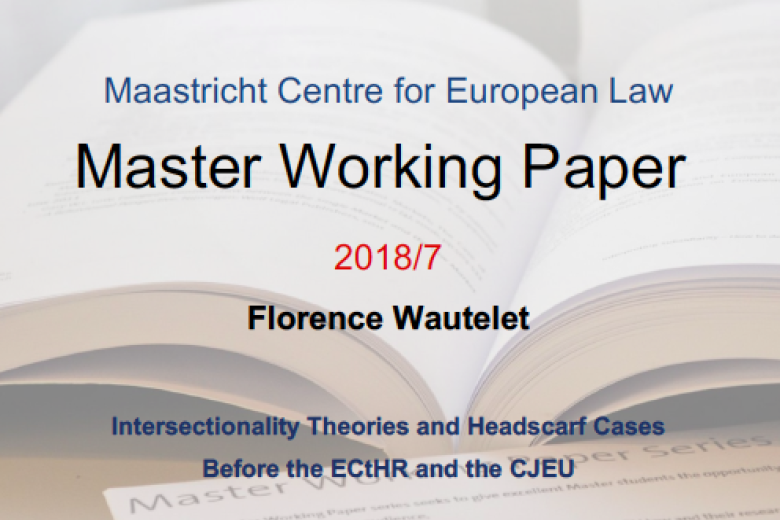
Britt Beliën; Ellil Zachari; Valerie Govers (2018). State Aid and Public Procurement - The Evolution of State Aid to Banks: A Post Crisis Review.
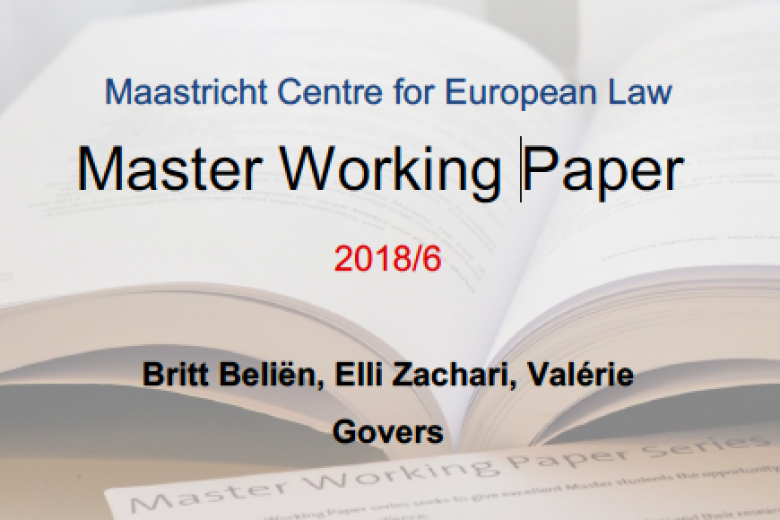
Matthias Hasler (2018). The Legal Classification of ESM – MoUs in the Ledra Decision: At Odds with the Union Principle of the Rule of Law?
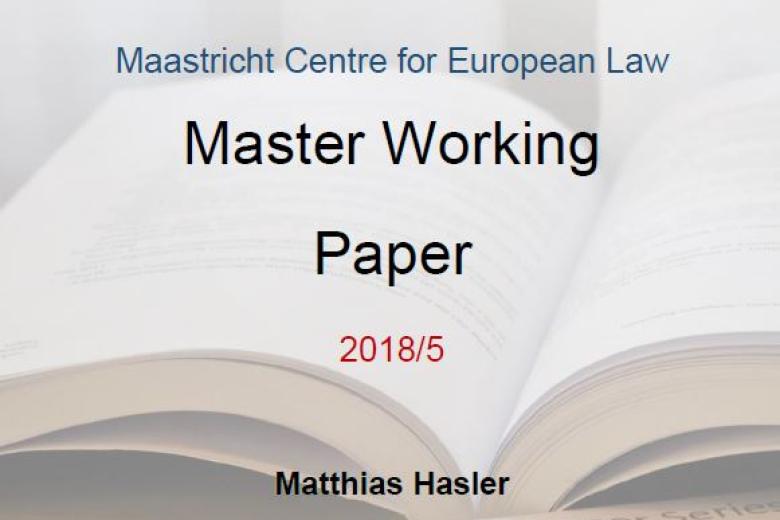
Katrin Bungart (2018). The European Chemicals Agency and its Compliance with the Meroni Doctrine: Do the powers of the European Chemicals Agency go beyond the scope of what is permissible under the Meroni doctrine (as modified by Case C-270/12)?

Christine Recker (2018). Banking Resolution Under the SRM Regulation and the Single Resolution Board: An assessment of the limits to the delegation of powers to EU agencies - The Single Resolution Board and its compliance with the Meroni doctrine.
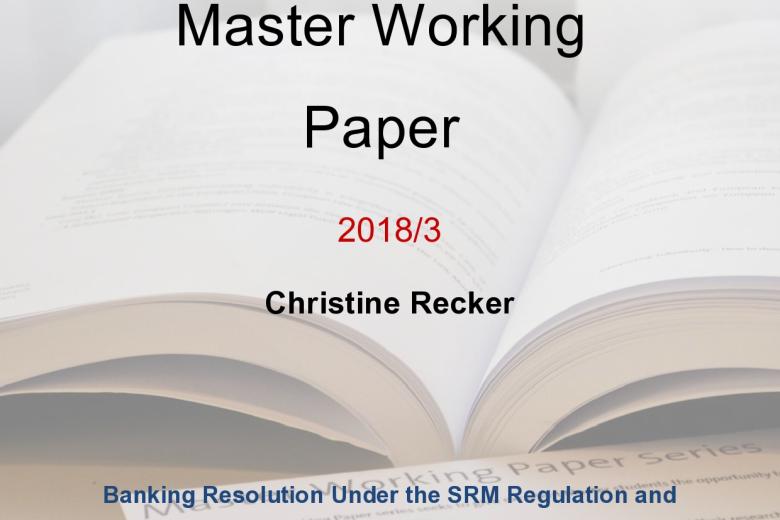
Jasmin Hiry (2018). Fitting national social security benefits into European categories: Are long-term care benefits exportable within the framework of Regulation 883/2004?
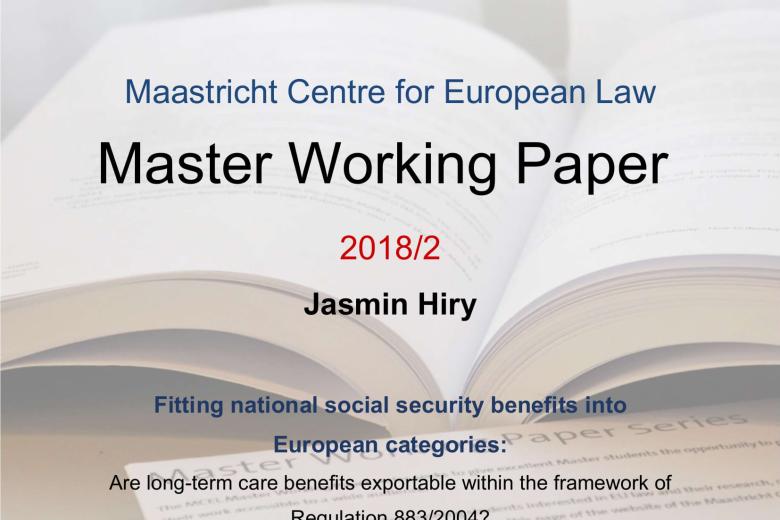
Eline Vancraybex (2018). Innovation in the EU Merger Control Battlefield: In Search for Best Practices.
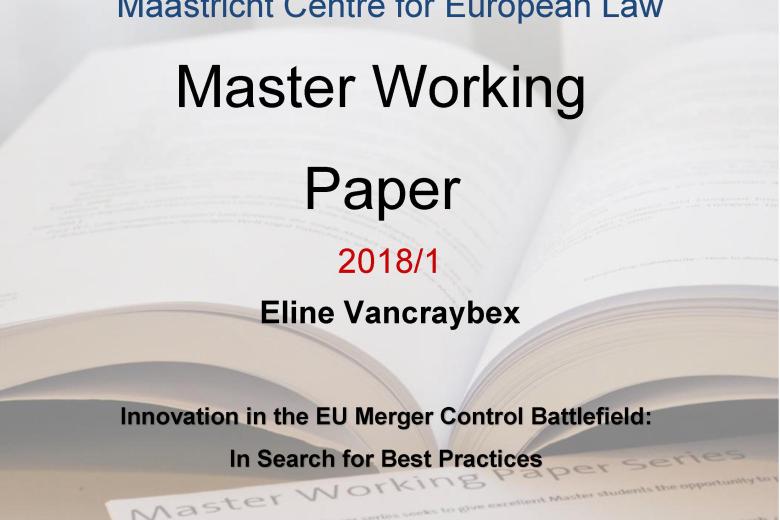
Chris Mondschein (2017). The Regulation of Targeted Behavioural Advertising in the European Union
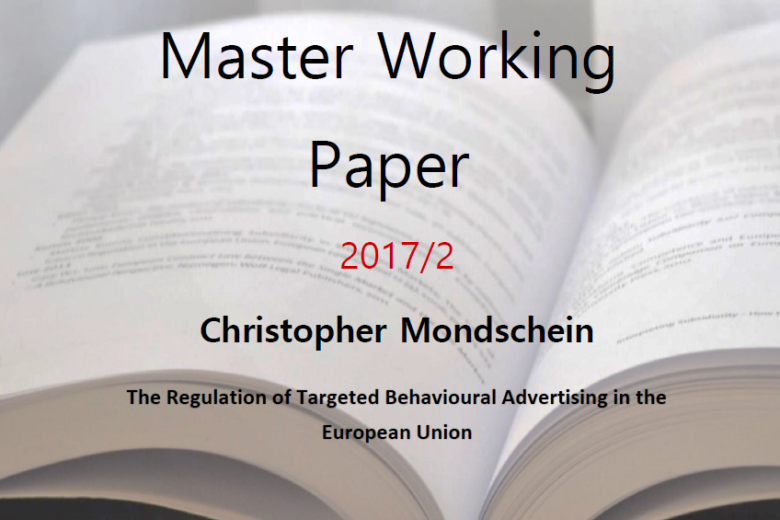
Sarah Wagner (2017). The Future of Transatlantic Data Flows: Privacy Shield or Privacy Sieve? An adequacy assessment by reference to the jurisprudence of the Court of Justice of the European Union.
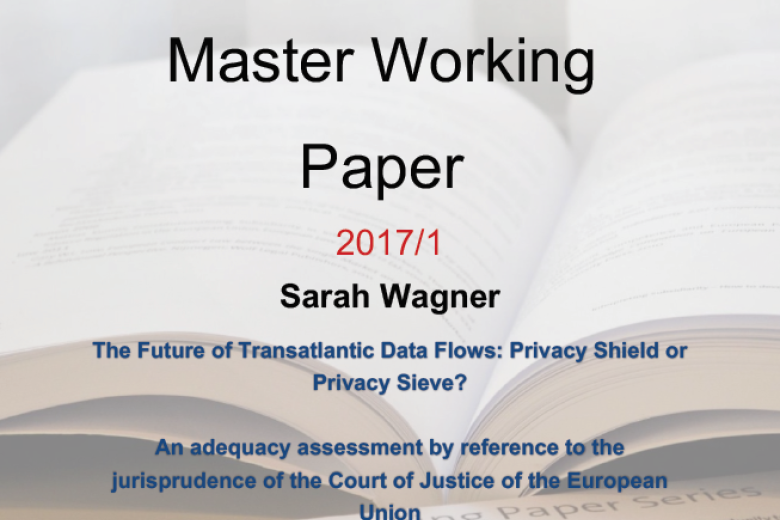
Kortese, L (2016). Assessing the Coherence of Mechanisms for the Recognition of Qualifications: Discerning Dimensions to a Multilevel Challenge.
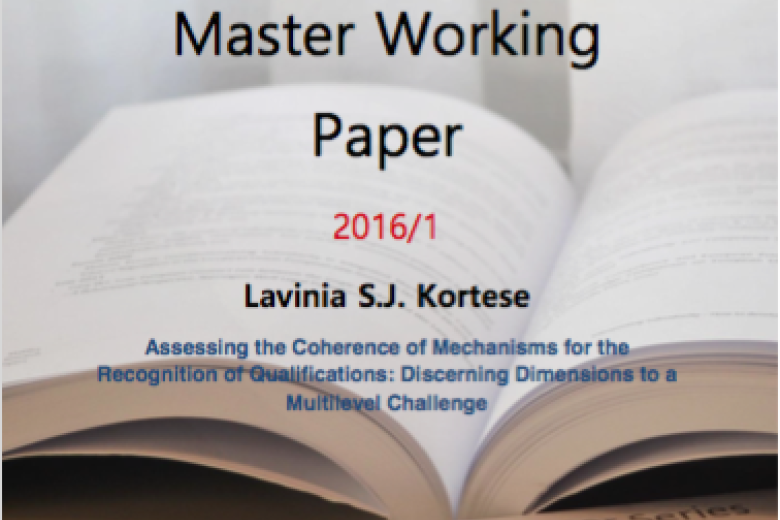
Leonie Kijewski (2015). Protecting Borders, People and Rights at Sea? An Analysis of Frontex’s Approach to Human Rights.
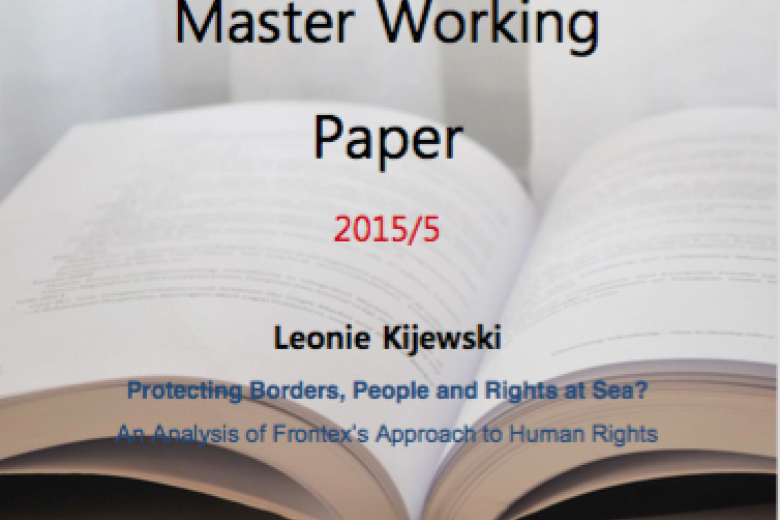
Koen Orbons (2015), EU Accession to the ECHR:Is it still worth pursuing after Opinion 2/13.
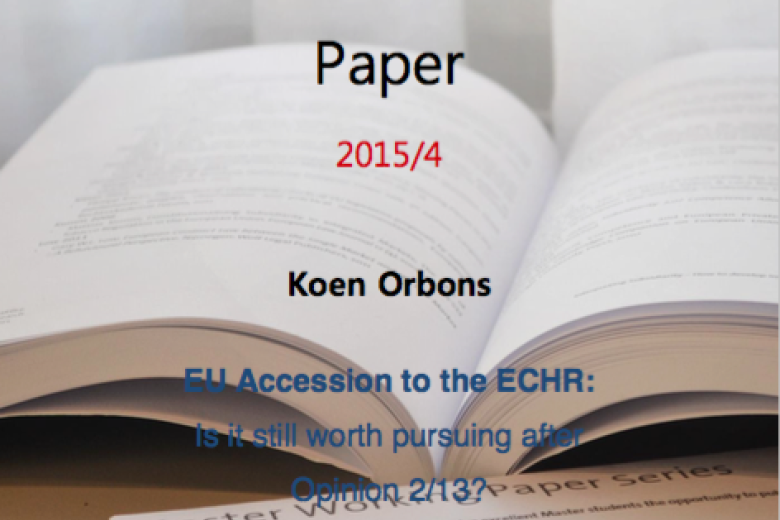
Nina Stoffel (2015). Quo Vadis Impact Assessment? An Evaluation of the European Commission’s New Better Regulation Agenda.
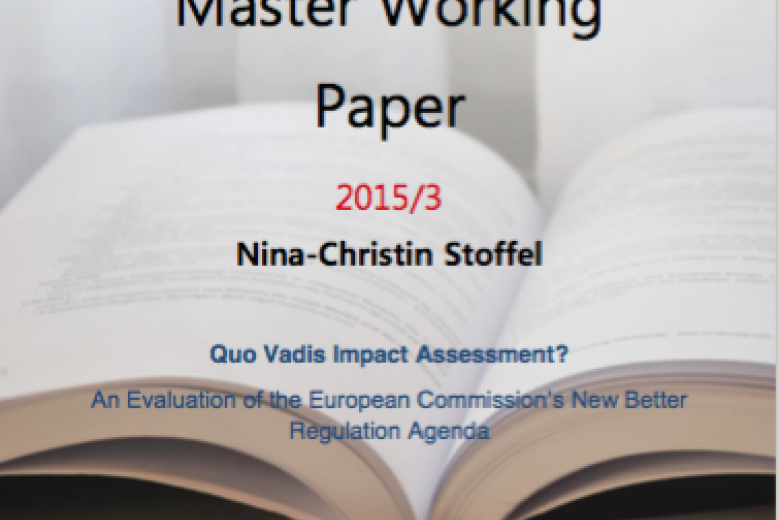
Nina Ferreira (2015). The European Parliament’s Practice in the Adoption of International Trade Agreements: The Creation of an Institutional Parallelism to the Unilateral Dimension?
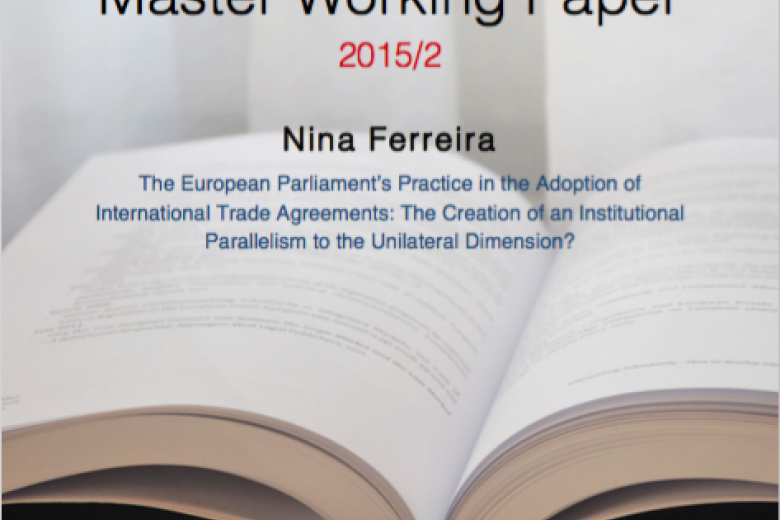
Giulia Giardi (2015). Fighting the European Ecomafia: Organised trafficking in waste and the need for a criminal law response from the EU.
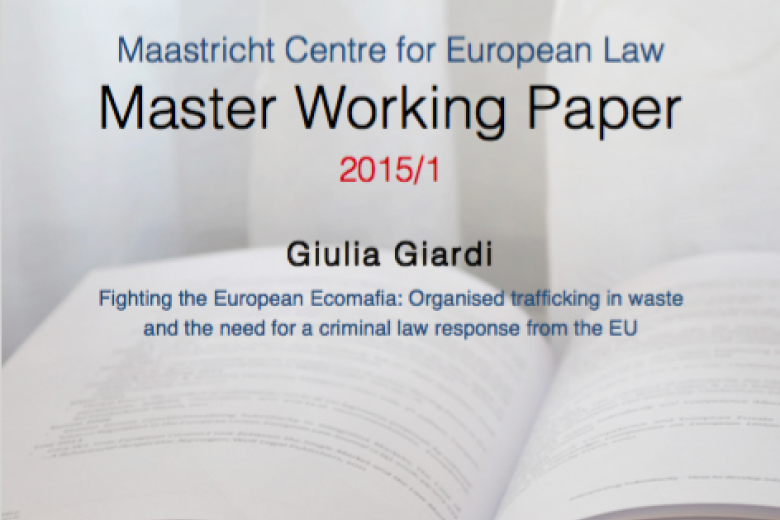
MCEL annual reports
Annual Report 2022
This Annual Report highlights the main activities of the Centre that were undertaken in the year 2022.
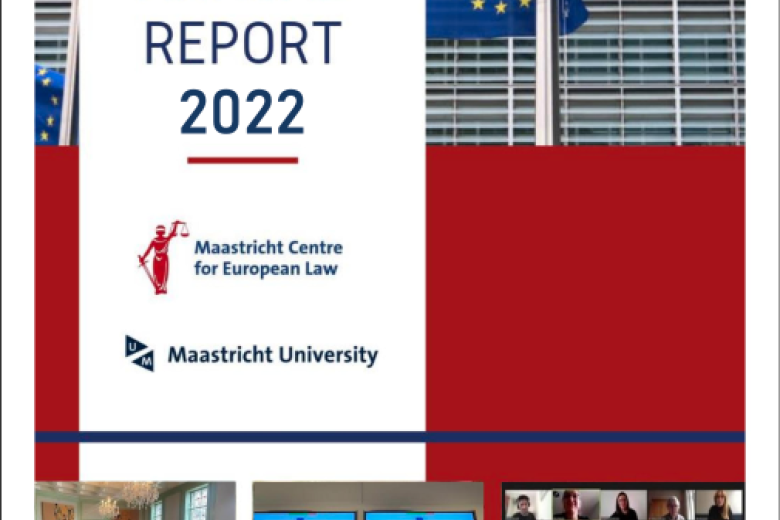
Annual Report 2021
This Annual Report highlights the main activities of the Centre that were undertaken in the year 2021.
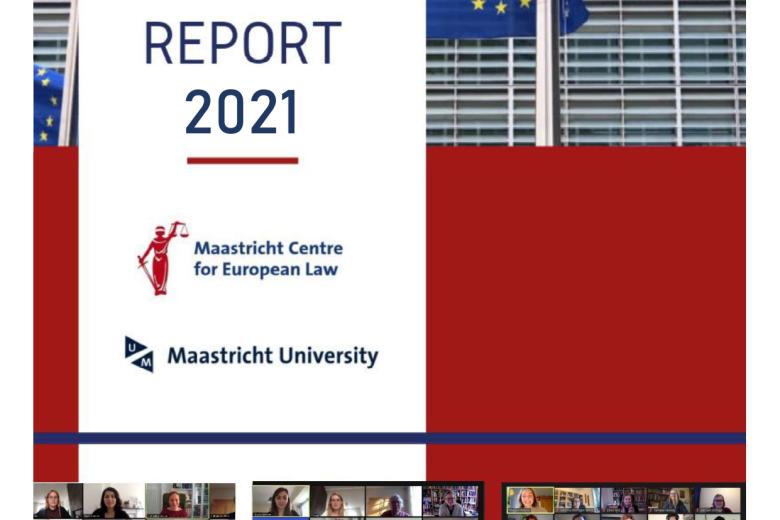
Annual Report 2020
This Annual Report highlights the main activities of the Centre that were undertaken in the year 2020.
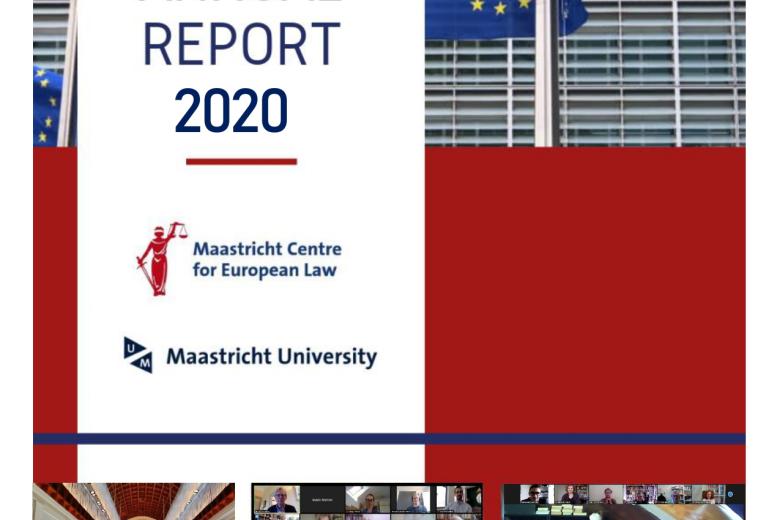
Annual Report 2019
This Annual Report highlights the main activities of the Centre that were undertaken in the year 2019.
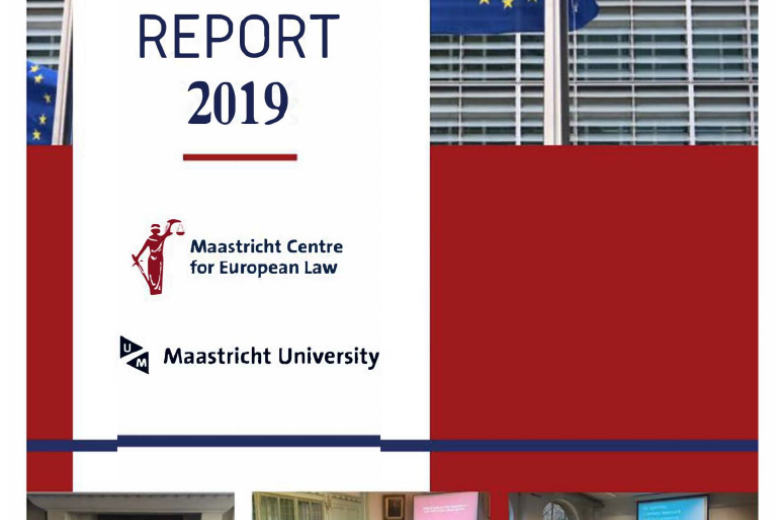
Annual Report 2018
This Annual Report highlights the main activities of the Centre that were undertaken in the year 2018.
